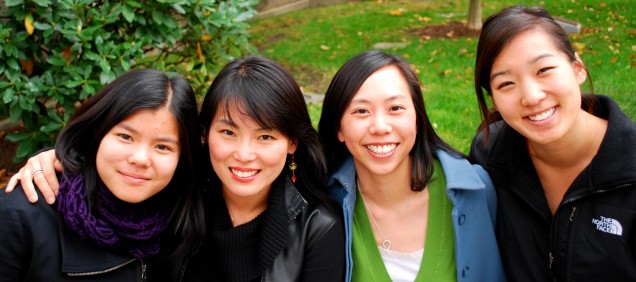Precursor to AWARE: AWSHIP: Healthy Women, Healthy Communities
AWSHIP (Asian Women’s Health Initiative Project), is a five-year study funded by the National Institute of Mental Health (NIMH). It is directed by Dr. Hyeouk Chris Hahm at the Boston University School of Social Work.
Since 2010, AWSHIP has disseminated 17 journal articles and given over 60 presentations at both national and international conferences. In addition to these publications there are currently 6 other studies in the process of being considered for publication by peer reviewed journals or being prepared by our research team. We would like to extend a special thanks to all the Asian American women who participated in our study, and we are pleased to be able to share our findings with you.
To view our study findings, click here.
“Healthy Women, Healthy Communities” was a project conducted by Asian Women’s Health Initiative Project (AWSHIP).
The project focused on values important to Asian Americans: familial relations, health, and community. Through these lenses, the project examined the interrelation of mental, sexual, and physical health, and how culture and familial relations affect personal health practices. Specifically, “Healthy Women, Healthy Communities” focused on factors including acculturation, family relations, depression, sexual risk behaviors, and gender inequities to determine their relation to the different subsets of personal health and risk behaviors. Since there is very little data currently on the health practices of Asian Americans, and Asian American women in particular, this study helped in the development of specific, culturally-competent programs for future generations of Asian American women in regards to mental, physical, and sexual health.
This project interviewed 600 Korean, Chinese, and Vietnamese women between the ages of 18-35, who are children of immigrants and live in the Boston area.
The project included three phases. The first two phases spanned five years.
Phase One: Computer surveys.
We used computer surveys that took about 30-45 minutes to complete. The survey included questions about family life, relationships, risk behaviors, mental health, culture, and values. There are about 600 women who completed this survey. Participants were compensated with $20.
Phase Two: In-depth interviews.
We conducted interviews with 50 interested women who have completed Phase 1 of the project. The interviews were one-on-one, and lasted for 90 minutes. During the interviews, we asked participants to describe at length their family life, relationships, risk behaviors, mental health, culture, and values. Participants were compensated with $20.
Phase Three: Prevention and intervention.
Based on data that we gathered from Phases One and Two, we developed a program for promoting healthy conditions among Asian-American females and for future generations.
